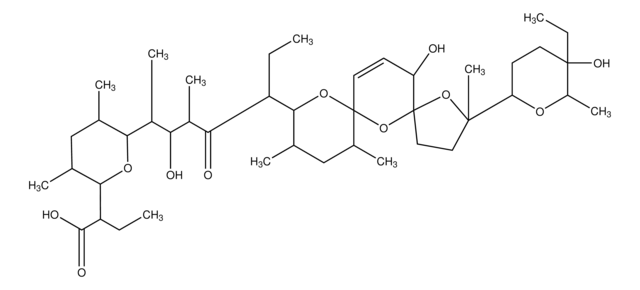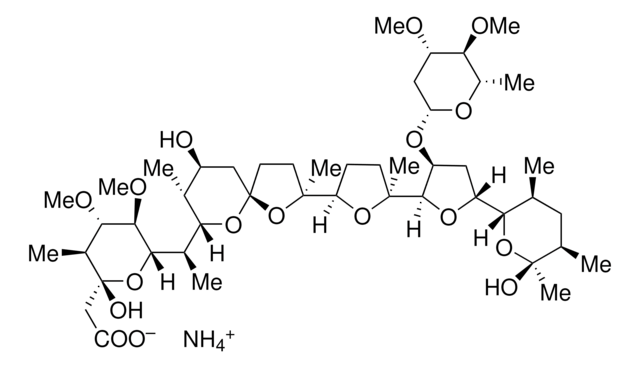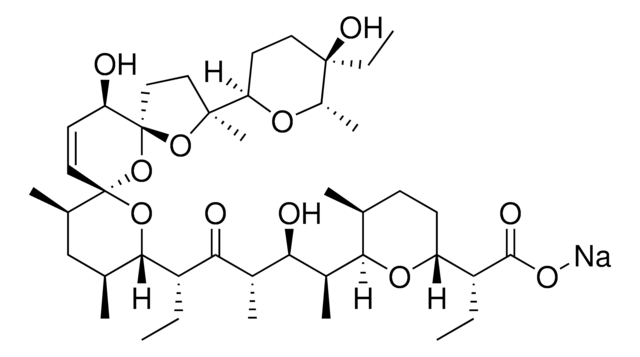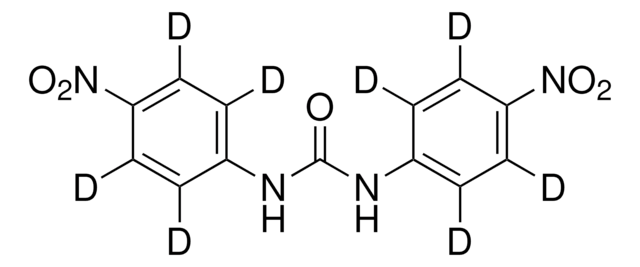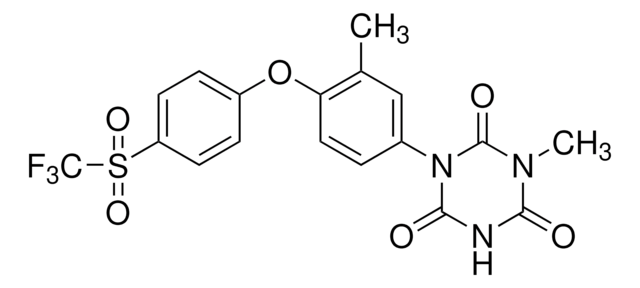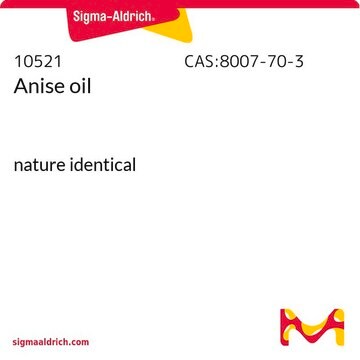33988
Clopidol
VETRANAL®, analytical standard
Synonym(s):
3,5-Dichloro-2,6-dimethyl-4-pyridinol
About This Item
Recommended Products
grade
analytical standard
Quality Level
product line
VETRANAL®
shelf life
limited shelf life, expiry date on the label
technique(s)
HPLC: suitable
gas chromatography (GC): suitable
application(s)
forensics and toxicology
pharmaceutical (small molecule)
format
neat
SMILES string
Cc1nc(C)c(Cl)c(O)c1Cl
InChI
1S/C7H7Cl2NO/c1-3-5(8)7(11)6(9)4(2)10-3/h1-2H3,(H,10,11)
InChI key
ZDPIZLCVJAAHHR-UHFFFAOYSA-N
Looking for similar products? Visit Product Comparison Guide
General description
Application
- Bovine muscle, animal tissues and eggs by hydrophilic interaction liquid chromatography-tandem mass spectrometry (HILIC-MS/MS).
- Environmental water samples by on-line solid phase extraction (SPE) and ultra-high performance liquid chromatography-high resolution mass spectrometry (UHPLC-HRMS).
- Chicken processed foods and muscles by solid-supported liquid extraction (SLE) clean-up and LC-MS/MS.
Recommended products
Legal Information
Signal Word
Warning
Hazard Statements
Precautionary Statements
Hazard Classifications
Eye Irrit. 2 - Skin Irrit. 2 - STOT SE 3
Target Organs
Respiratory system
Storage Class Code
11 - Combustible Solids
WGK
WGK 2
Personal Protective Equipment
Choose from one of the most recent versions:
Already Own This Product?
Find documentation for the products that you have recently purchased in the Document Library.
Customers Also Viewed
Our team of scientists has experience in all areas of research including Life Science, Material Science, Chemical Synthesis, Chromatography, Analytical and many others.
Contact Technical Service